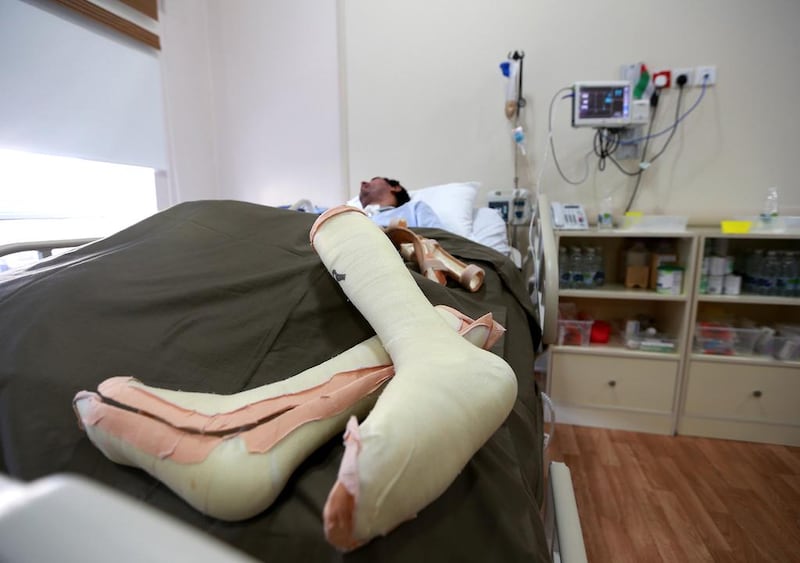AL AIN // Getting behind the wheel of a car and speeding is a decision that will always haunt Khaled and Mohammed .
They were involved in high-speed accidents and suffered such serious injuries that they will be dependent on round-the-clock medical care for the rest of their lives.
Both Emiratis are patients at Amana Healthcare, a long-stay care hospital in Al Ain, and they share almost identical stories.
Khaled, 37, a married father with a young daughter, was driving near Abu Dhabi’s border before his accident in 2009, which changed his life and that of his family.
Mohammed, 32, a married father of four, was also driving at high speeds when he was in a crash in 2005.
Both were left permanently and severely disabled after suffering brain injuries, fractures and organ damage.
The men were admitted to acute hospitals in Abu Dhabi and Al Ain and underwent months of treatment and numerous operations.
Both later spent extended periods at specialised hospitals in Europe before being assigned to closed rooms in acute hospitals for medical and nursing supervision. Several months ago they were admitted to Amana Healthcare.
Khaled and Mohammed are conscious and aware of their surroundings but neither will fully recover.
The best the staff at Amana can do is to give them the best quality of care and improve their quality of life.
They are two of many road accident victims being treated at the hospital.
Each have a different back story with a common theme – all will never fully recover and will need intensive care treatment for the rest of their lives.
Amana has shared the stories as a stark reminder of the life-changing consequences of ignoring the basic rules of the road.
Not wearing a seat belt, not putting a child in a safety seat, speeding or driving recklessly – breaking just one traffic rule can change a person’s life.
“These two cases demonstrate the devastation that has been bestowed on both of these young men and their families,” said Ali Hashemi, director of Amana Healthcare.
“In both situations the young men were driving the motor vehicles and in both situations were driving at high speeds.
“The head injuries sustained have turned everything in their lives and their families’ lives upside down.
“Their routine existence has changed beyond recognition, not to mention the constant worry and stress that their families have had to endure since the accidents.
“However, throughout it all, these brave families continue to fight for their loved ones and forever hold on to the hope that someday their son, father, husband, will gain back some aspects of their former life.”
Amana hopes that its message can prevent others from becoming just another tragic statistic.
jbell@thenational.ae





